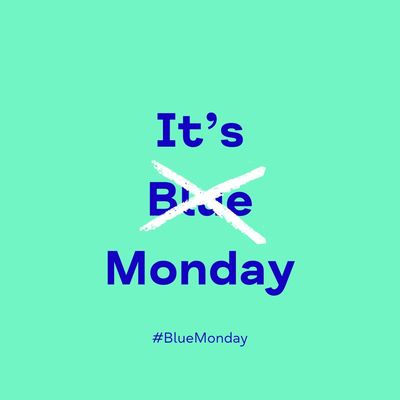In today's ever-changing world, understanding and adhering to equality, diversity, and inclusion (ED&I) principles has become more crucial than ever for businesses. As we progress through 2024, it's essential to stay informed about the legal requirements and best practices surrounding ED&I in the workplace. The Equality Act 2010 remains the cornerstone of anti-discrimination legislation, protecting individuals from unfair treatment based on nine protected characteristics:
Age
Disability
Race
Gender reassignment
Religion or belief
Sex
Sexual orientation
Marriage and civil partnership
Pregnancy and maternity
Recent changes to the Equality Act 2010
Recent amendments and reforms to the Act have come into effect, requiring employers to adapt their policies and practices accordingly. The Equality Act 2010 (Amendment) Regulations 2023 introduced clearer definitions for irregular hours workers and part-year workers, along with a new method for calculating their statutory holiday entitlement. This includes provisions for leave accrual when these workers take maternity, family-related leave, or sick leave. Additionally, the regulations clarify what constitutes 'normal remuneration' for the four weeks of statutory annual leave.
What are the implications?
The evolving ED&I landscape has significant implications for hiring practices. Employers must take proactive steps to embed ED&I principles into their recruitment processes to attract diverse talent and ensure fair opportunities for all candidates. This begins with crafting inclusive job descriptions that use neutral language and focus on essential skills and qualifications rather than unnecessary requirements that may inadvertently exclude certain groups. Diverse interview panels and structured interviews with standardised questions can help mitigate unconscious bias and ensure a more objective evaluation of candidates.
The changing ED&I landscape has a profound impact on recruitment strategies and practices. As organisations strive to create more inclusive and diverse workplaces, they must adapt their hiring processes to attract and select talent from a wide range of backgrounds. This involves:
Reviewing job descriptions to ensure they use inclusive language and do not inadvertently discourage or exclude certain groups from applying
Expanding their search beyond traditional talent pools, actively seeking out candidates from underrepresented communities
Partnering with diverse professional networks and educational institutions
Implementing structured interviews and diverse interview panels to mitigate unconscious bias and ensure a fair evaluation of all candidates based on their skills, experience, and potential
By embedding ED&I principles into every stage of the recruitment process, organisations can build more diverse teams that drive innovation, reflect their customer base, and contribute to a more inclusive company culture.
Building an Inclusive Culture
Once onboard, providing ongoing training and education for leaders and teams is essential to raise awareness, challenge stereotypes, and promote understanding. Celebrating employee differences is another powerful way to demonstrate an organisation's commitment to ED&I. By acknowledging and appreciating the unique perspectives and experiences that each individual brings to the table, employers can create a sense of belonging and psychological safety. This can be achieved through initiatives such as employee resource groups, diversity-focused events, and regular communication that highlights the value of diversity.
Giving everyone a voice is equally important in building an inclusive culture. Encouraging open communication, actively seeking feedback, and responding to employee concerns demonstrates that their opinions matter. Regular surveys, focus groups, and one-on-one discussions can provide valuable insights into the effectiveness of ED&I initiatives and areas for improvement. Acting upon this feedback and involving employees in the decision-making process further reinforces the message that their contributions are valued.
Upcoming Changes in Worker Protections and Rights
Looking ahead, several new acts are set to come into force over the next two years, expanding worker protections and rights. From April 2024, employees will have the right to request flexible working from day one of their employment, without the need to explain how their request might impact the employer. Organisations will also have a duty to prevent sexual harassment in the workplace, with the potential for increased compensation if they fail to do so. Other notable changes include extended neonatal and carer's leave entitlements, enhanced redundancy protections following family leave, and the right for workers to request more predictable working patterns.
As the ED&I landscape continues to evolve, it is imperative for employers to stay agile and adapt their approach accordingly. Regularly reviewing and revising policies, procedures, and initiatives ensures that they remain relevant and effective in promoting equality, diversity, and inclusion. By treating ED&I as an ongoing journey rather than a destination, organisations can create a culture where every individual feels valued, respected, and empowered to reach their full potential.
In conclusion, navigating the complex terrain of ED&I in 2024 requires a proactive, holistic approach that goes beyond mere legal compliance. By staying informed, leading by example, and continuously striving to create an inclusive workplace, employers can not only mitigate legal risks but also reap the numerous benefits of a diverse, engaged, and supported workforce. Employers who fail to prioritize ED&I risk falling behind in attracting and retaining top talent, as well as missing out on the numerous benefits of a diverse and inclusive workplace. Ultimately, prioritising ED&I is not just the right thing to do – it is a business imperative in today's global, interconnected world, and the time to act is now.













.png)